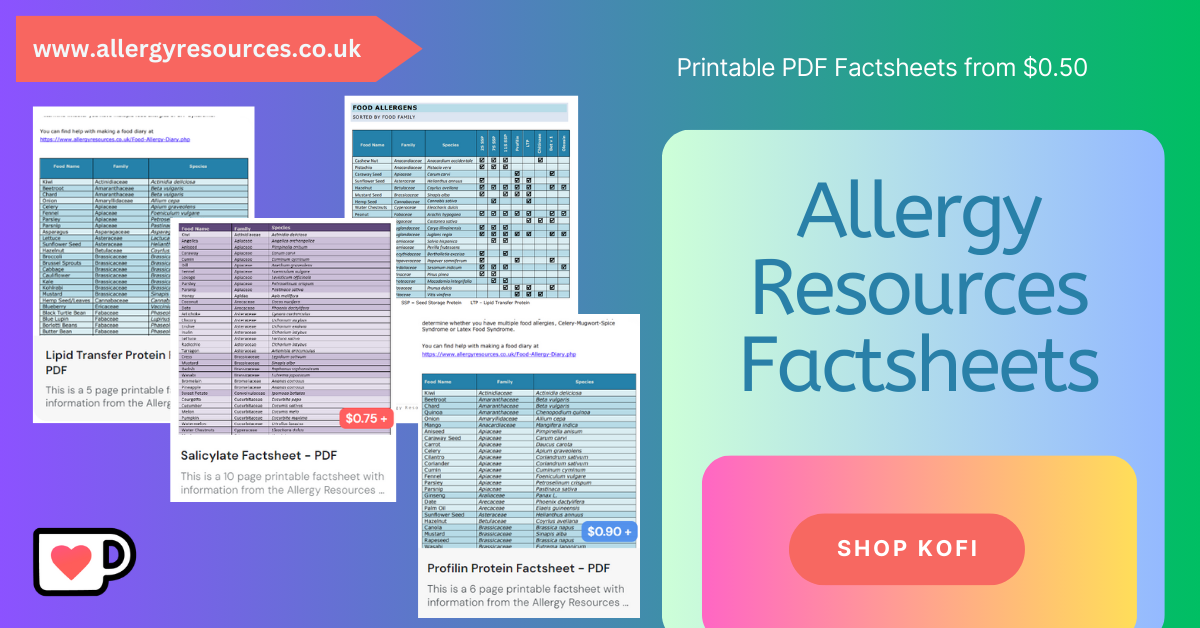
ASPARAGUS ALLERGY
Key Allergens
Aspa o 1 is the key allergen associated with an allergy to asparagus, it is a Lipid Transfer Protein (LTP). If you have an allergy to this protein you will still suffer symptoms on ingestion of the cooked vegetable.
There is some evidence that asparagus can cause contact dermatitis rashes - this is due to a plant growth inhibitor called 1,2,3-Trithiane-5-carboxylic acid which is present in young shoots. If sensitised to this you will still be able to eat the cooked food.
Food Intolerances



Asparagus is naturally moderate in sulphites. This is a food intolerance which is more common in asthmatics. An improvement in symptoms can be made with a change to a low sulphite diet.
Asparagus is a high FODMAP food. FODMAP stands for Fermentable oligosaccharides, disaccharides, monosaccharides and polyols. Foods high in FODMAPs can cause symptoms of food intolerance, affecting the gastro intestinal system and this can be mistaken for a true IgE food allergy.
Asparagus is a food low in salicylates. Salicylates have the potential to cause gastrointestinal food intolerance symptoms in people who are sensitive to salicylates.
You can read more about Food Intolerances on the dedicated Food Intolerance Page.
Associated Syndromes
Cross Reactivity
Resources
Websites
Allergen Encyclopedia - Asparagus
DermNet NZ - Asparagus Allergy
Anaphylaxis Campaign - Allergy to Vegetables
Anaphylaxis Campaign - LTP Syndrome
ATP Science - Salicylate Food List
Articles and Journals
Is exposure to pollen a risk factor for moderate and severe asthma exacerbations? 2023
Allergic Rhinitis Due To the Ornamental Plant Sansevieria trifasciata, 2022
Lipid transfer protein allergy: A review of current controversies, 2022
Sensitisation to lipid transfer proteins in pollen – allergic adults with food allergy, 2020
Allergy to LTP: to eat or not to eat sensitizing foods? A follow-up study, 2018
Detection of some safe plant-derived foods for LTP-allergic patients, 2007
Fixed food eruption caused by asparagus, 2005
Diversity of asparagus allergy: clinical and immunological features, 2004
Characterization of asparagus allergens: a relevant role of lipid transfer proteins, 2002
Contact dermatitis to Asparagus officinalis, 2000